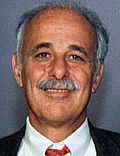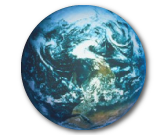 Dr. Roberto Peccei is a professor in the Department of Physics and Astronomy and is the former Vice Chancellor for Research at the University of California Los Angeles, a position he held from 2000-2010. Dr.Peccei has served as dean of physical sciences in the UCLA College of Letters and Science, and chair of UCLA’s Department of Physics and Astronomy. He is the 2013 recipient of the J. J. Sakurai Prize for Theoretical Particle Physics in honor of the Peccei-Quinn Symmetry, an elegant theory that ties together several branches of physics and has important implications for our universe. He is a particle theorist whose principal interests lie in the area of electroweak interactions and in the interface between particle physics and physical cosmology. Dr. Peccei serves on the Editorial Board of Nuclear Physics B Supplement, and the Journal of Physics G. Dr. Peccei obtained a Bachelor of Science from MIT in 1962, his Master’s degree from New York University (NYU) in 1964 and a Ph.D. from MIT in 1969. He is a member of the Club of Rome and President of the Fondazione Aurelio Peccei, and is a Fellow of both the American Physical Society and the Institute of Physics in the United Kingdom.
Dr. Roberto Peccei is a professor in the Department of Physics and Astronomy and is the former Vice Chancellor for Research at the University of California Los Angeles, a position he held from 2000-2010. Dr.Peccei has served as dean of physical sciences in the UCLA College of Letters and Science, and chair of UCLA’s Department of Physics and Astronomy. He is the 2013 recipient of the J. J. Sakurai Prize for Theoretical Particle Physics in honor of the Peccei-Quinn Symmetry, an elegant theory that ties together several branches of physics and has important implications for our universe. He is a particle theorist whose principal interests lie in the area of electroweak interactions and in the interface between particle physics and physical cosmology. Dr. Peccei serves on the Editorial Board of Nuclear Physics B Supplement, and the Journal of Physics G. Dr. Peccei obtained a Bachelor of Science from MIT in 1962, his Master’s degree from New York University (NYU) in 1964 and a Ph.D. from MIT in 1969. He is a member of the Club of Rome and President of the Fondazione Aurelio Peccei, and is a Fellow of both the American Physical Society and the Institute of Physics in the United Kingdom.
Honors
- Phi Beta Kappa Lecturer at UCLA and the Emilio Segre Professor at the University of Tel Aviv, 1992
- Delivered the first Abdus Salam Memorial Lecture in Pakistan, 1997
- Fellow of both the American Physical Society and the Institute of Physics in the United Kingdom, the American Association for the Advancement of Science, and the World Academy of Arts and Sciences
- Peccei is a fellow of the American Physical Society and recipient of the American Physical Society’s 2013 J.J. Sakurai Prize for Theoretical Particle Physics Website.
Return to Board Members Index

